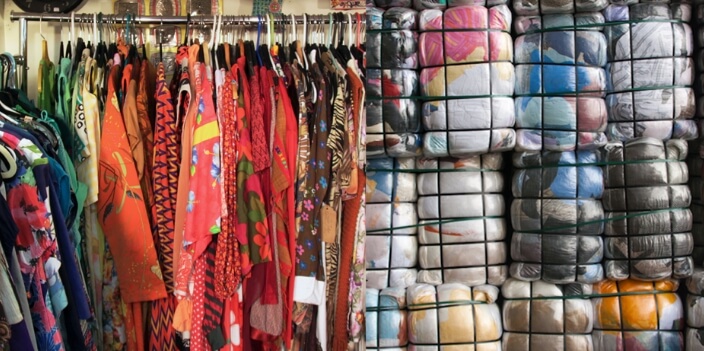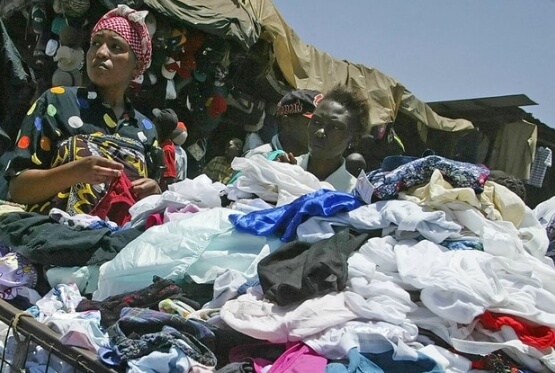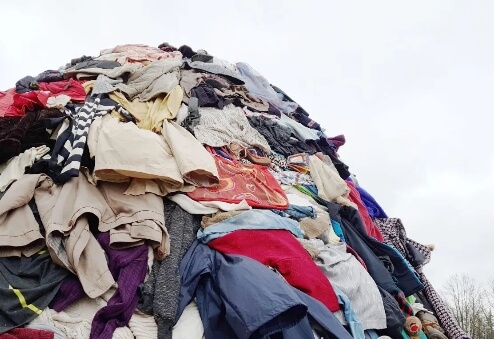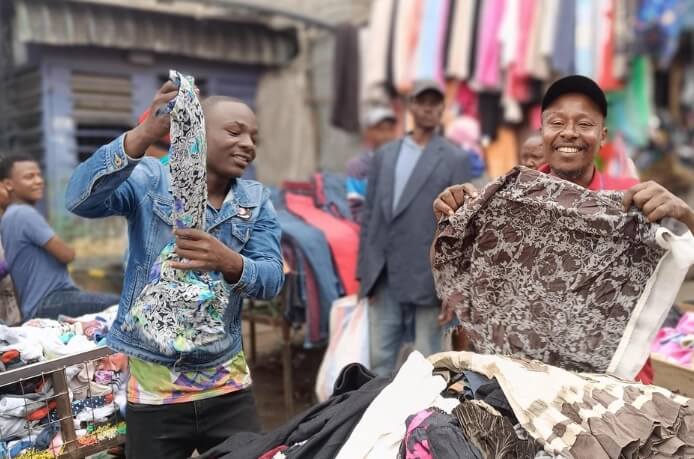Mozambique used clothes have become an increasingly popular commodity in the global secondhand apparel market, offering both affordability and sustainability to growing economies. For B2B importers looking to tap into this expanding sector, understanding how to source high-quality secondhand garments from Mozambique is key. In this guide, we will explore the essential strategies for securing reliable suppliers and navigating the complexities of the Mozambique used clothes trade.

Table of Contents
1. Introduction
The global market for Mozambique secondhand clothes has been rapidly growing, presenting a significant opportunity for B2B importers looking to source affordable, high-quality secondhand apparel. As demand for sustainable fashion and low-cost clothing options rises, Mozambique has become an essential hub for used clothes exporters. This guide will explore the strategies and best practices for sourcing Mozambique used clothes that meet the quality standards expected in international markets.
2. Understanding the Mozambique Used Clothes Market
The Mozambique used clothes market has seen substantial growth in recent years, fueled by rising global demand for secondhand apparel. Importers looking to capitalize on this trend must first understand the key dynamics driving this market. From local supply chains to regional export networks, the Mozambique market offers ample opportunities for B2B buyers.
Market Trends and Growth Drivers
The growth of the Mozambique used clothes market is largely driven by increasing consumer awareness of sustainable fashion and the cost-effectiveness of secondhand garments. Importers must stay informed of these trends to effectively navigate the market.
Key Players and Major Suppliers
In the Mozambique secondhand clothes industry, key players include both small-scale local suppliers and larger export companies. Building relationships with reputable suppliers is essential for ensuring consistent product quality and timely shipments.
Regional Demand and Export Opportunities
The demand for Mozambique used clothes is not only domestic but also extends to neighboring countries, providing importers with multiple export opportunities. Understanding regional preferences and tailoring your sourcing strategies can help maximize sales potential.
3. Benefits of Importing Mozambique Used Clothes
Importing Mozambique secondhand clothes offers a range of benefits for B2B businesses, from cost savings to ethical advantages. These garments provide an affordable alternative to new apparel, making them highly attractive in developing markets.

Cost-Effectiveness and Profit Margins
One of the primary benefits of sourcing Mozambique used clothes is their cost-effectiveness. Importers can acquire high-quality garments at lower prices, which in turn increases profit margins when reselling to consumers.
Sustainability and Environmental Impact
The global shift towards sustainable fashion has made Mozambique secondhand clothes a popular choice for eco-conscious consumers. Importing secondhand clothes from Mozambique helps reduce textile waste and promotes a circular economy.
Meeting Global Demand for Affordable Apparel
As the demand for affordable fashion continues to grow, importing Mozambique secondhand clothes allows B2B businesses to meet the needs of price-sensitive consumers across different markets.
4. Key Strategies for Sourcing Quality Secondhand Apparel
When sourcing Mozambique used clothes, it’s crucial to develop strategies that ensure you obtain the best possible quality. From identifying reliable suppliers to building strong business relationships, careful planning is key.
Identifying Reliable Suppliers
Finding reliable suppliers for Mozambique used clothes is critical to maintaining product quality. Importers should vet potential partners thoroughly, focusing on their reputation and history in the secondhand industry.
Assessing Supplier Credibility and Reputation
Supplier credibility plays a vital role in sourcing Mozambique used clothes. Importers should check references, visit supplier sites, and conduct quality audits to ensure they are partnering with reputable businesses.
Building Strong Supplier Relationships
Establishing long-term relationships with suppliers of Mozambique secondhand clothes can lead to better pricing, priority access to high-quality stock, and more flexible payment terms, which benefit both parties.
5. Navigating Trade Regulations and Compliance
Importing Mozambique secondhand clothes involves understanding the legal and regulatory frameworks that govern the secondhand trade. Being aware of these regulations is essential to avoid potential issues and delays.

Understanding Import Regulations for Secondhand Goods
Each country has specific regulations for importing secondhand goods, including Mozambique used clothes. Familiarizing yourself with customs rules, taxes, and duties will help streamline the import process.
Compliance with International Trade Standards
To successfully import Mozambique secondhand clothes, importers must comply with international trade standards. This includes ensuring that the apparel meets quality and safety standards set by the destination country.
Managing Legal and Documentation Requirements
Importers of Mozambique secondhand clothes must manage various legal and documentation requirements, such as certificates of origin and health inspections. Proper paperwork helps avoid customs delays and ensures a smooth transaction.
6. Logistics and Shipping Considerations
Efficient logistics and shipping management are vital for importing Mozambique used clothes. Ensuring timely delivery and minimizing costs can greatly affect your bottom line and customer satisfaction.
Choosing the Right Shipping Partners
Selecting the right shipping partner for Mozambique used clothes is key to ensuring that your goods arrive on time and in good condition. Partner with carriers that have experience in handling secondhand apparel and navigating the complexities of international logistics.
Cost Management and Freight Optimization
Shipping costs can significantly impact the profitability of Mozambique used clothes imports. Implementing strategies for freight optimization, such as consolidating shipments or selecting cost-effective routes, can help keep expenses under control.
Ensuring Timely Delivery and Minimizing Delays
Timely delivery of Mozambique second-hand clothes is essential to maintaining customer satisfaction and ensuring the smooth operation of your supply chain. Monitoring shipping schedules and working with reliable logistics providers can help prevent costly delays.
7. Quality Control and Assurance
Maintaining consistent quality in Mozambique second-hand clothes imports is crucial for building a strong reputation and minimizing returns. Implementing a thorough quality control process is essential.
Implementing Effective Quality Inspection Processes
Effective quality inspection is critical when importing Mozambique used clothes. Regular inspections ensure that the garments meet your customers’ standards, preventing issues with defective or unsellable products.
Standards for Assessing Apparel Condition
There are specific standards for assessing the condition of Mozambique used clothes, including checking for tears, stains, and overall wear. Importers should establish clear criteria to ensure they are only sourcing high-quality garments.
Handling Returns and Defective Goods
Despite best efforts, defective items may occasionally be found in Mozambique used clothes shipments. Having a return policy in place and addressing such issues promptly will protect your business’s reputation.

8. Sustainability and Ethical Sourcing Practices
As sustainability becomes more important, B2B importers of Mozambique used clothes must ensure that their sourcing practices are ethical and environmentally responsible.
Promoting Ethical Trade in Secondhand Apparel
Ethical trade in Mozambique used clothes means sourcing from suppliers who treat workers fairly and operate transparently. Importers should prioritize working with businesses that adhere to ethical standards.
Minimizing Environmental Footprint
Importing Mozambique used clothes contributes to reducing the fashion industry’s environmental footprint. By reselling secondhand garments, importers play a role in extending the life cycle of clothing and reducing textile waste.
Corporate Social Responsibility for B2B Importers
For B2B importers, engaging in Corporate Social Responsibility (CSR) initiatives related to Mozambique used clothes can enhance brand image and demonstrate a commitment to sustainability and ethical trade.
9. Maximizing Profits and Minimizing Risks
Maximizing profits while minimizing risks is a top priority for importers of Mozambique used clothes. By implementing smart strategies, businesses can ensure long-term success.
Strategies for Profit Optimization
To optimize profits from Mozambique used clothes, importers should focus on bulk purchasing, negotiating favorable payment terms, and streamlining logistics to reduce overhead costs.
Risk Assessment and Mitigation Techniques
Importing Mozambique used clothes carries certain risks, including fluctuating demand and potential shipping delays. Conducting regular risk assessments and developing contingency plans will help minimize these challenges.
Adapting to Market Fluctuations
The secondhand market, including Mozambique used clothes, can be affected by changing fashion trends and economic conditions. Importers need to stay agile and adapt their strategies to respond to market fluctuations.
10. Case Studies and Success Stories
Several B2B businesses have successfully navigated the Mozambique used clothes market, demonstrating the potential for profitability and growth. Learning from their experiences can provide valuable insights for newcomers.
Examples of Successful B2B Importers in Mozambique Used Clothes
Success stories from established importers of Mozambique used clothes illustrate the strategies and best practices that have led to profitable and sustainable businesses.
Lessons Learned and Best Practices
Importers who have excelled in the Mozambique used clothes trade often share common lessons, such as the importance of reliable suppliers, strong logistics partnerships, and maintaining high product quality.
11. Conclusion
The Mozambique used clothes market offers significant potential for B2B importers, but success depends on sourcing strategies, understanding market dynamics, and adhering to trade regulations. By following the guidelines outlined in this article, importers can confidently navigate this growing market and capitalize on the opportunities it presents.
Each chapter and subpoint is designed to be SEO-friendly while providing valuable, actionable insights for B2B importers interested in Mozambique used clothes.







